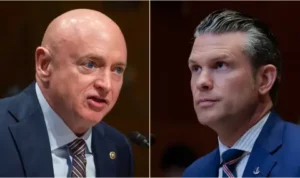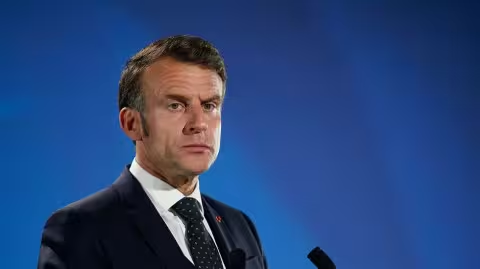France’s planned recognition of Palestine will not include the opening of an embassy until the Palestinian Hamas movement releases the hostages it holds in Gaza. This was stated by President Emmanuel Macron in an interview with CBS, broadcast today and quoted by Agence France-Presse.
“Before, for example, we will set this as a very clear condition,” he said.
The comment comes amid Palestine’s recognition from Britain, Canada and Australia earlier today – a step that AFP described as “seismic change” in Western foreign policy.
French President Emmanuel Macron Delivers Stark Warning: Seizing Russian Assets Would Shatter Global Legal Order
In a forceful and deeply principled address delivered before European lawmakers in Strasbourg, French President Emmanuel Macron drew a firm red line around one of the most contentious proposals emerging in Western capitals: the confiscation of frozen Russian state assets. Calling the idea not only legally untenable but dangerously destabilizing, Macron warned that such a move would represent a catastrophic rupture in the international rules based system “the beginning of total chaos,” as he put it.
Speaking with the conviction of a statesman deeply invested in global institutional integrity, Macron emphasized that even in the face of Russia’s brutal war in Ukraine, the sanctity of international law must remain inviolable. “We are all profoundly committed morally, politically, and legally to upholding the rules that bind the international community,” he said. “And you simply cannot appropriate the assets of a sovereign central bank, no matter how grave the circumstances. Not if we wish to preserve the credibility of our own institutions.”
Macron’s remarks come amid growing pressure from some NATO allies particularly in Eastern Europe and the United States to redirect the more than $300 billion in immobilized Russian central bank reserves toward Ukraine’s reconstruction or direct military support. While acknowledging the moral urgency behind such appeals, Macron cautioned that yielding to them would set a precedent with global consequences far beyond the current conflict.
“This is not about sympathy or political convenience. This is about trust,” he stressed. “If we, the nations that champion the rule of law, begin to selectively dismantle it when it suits us, then we hand authoritarian regimes the very weapon they seek: the argument that no rules are truly binding. That everything is negotiable. That power, not principle, decides outcomes.”
He painted a broader picture of global instability already fueled by eroding legal norms pointing to crises in the Middle East and elsewhere where the weakening of international law has allowed aggression to flourish. “When we fail to respond with sufficient strength and consistency to violations whether in Gaza, in Kyiv, or in the South China Sea we invite more violations. We normalize lawlessness. And that is how order collapses into chaos.”
Macron’s position, while controversial among Ukraine’s most ardent supporters, reflects France’s long standing diplomatic posture: that the legitimacy of Western action rests on its fidelity to legal frameworks, even perhaps especially during times of crisis. He insisted France would remain “predictable” and “principled,” refusing to engage in what he called “impossible things” with frozen assets, no matter how politically expedient they might seem.
“We cannot defeat lawlessness by becoming lawless ourselves,” Macron declared. “To fund Ukraine’s future, we must find lawful, sustainable, and collectively agreed mechanisms not shortcuts that unravel the very fabric we are trying to defend.”
His message resonated as both a legal argument and a moral appeal aimed not only at European partners but at global audiences watching to see whether democratic nations will hold themselves to the standards they demand of others. For Macron, the choice is existential: uphold the system, or hasten its disintegration.
As debates intensify in Brussels and Washington, Macron’s voice adds a sober counterweight reminding allies that how they respond to Russia’s aggression may ultimately matter as much as the response itself. In his view, true strength lies not in bending the rules, but in defending them even when it’s hard. Especially when it’s hard.
Because once the world accepts that rules can be discarded for convenience, he warned, no nation not even the most powerful will be safe from the chaos that follows.











